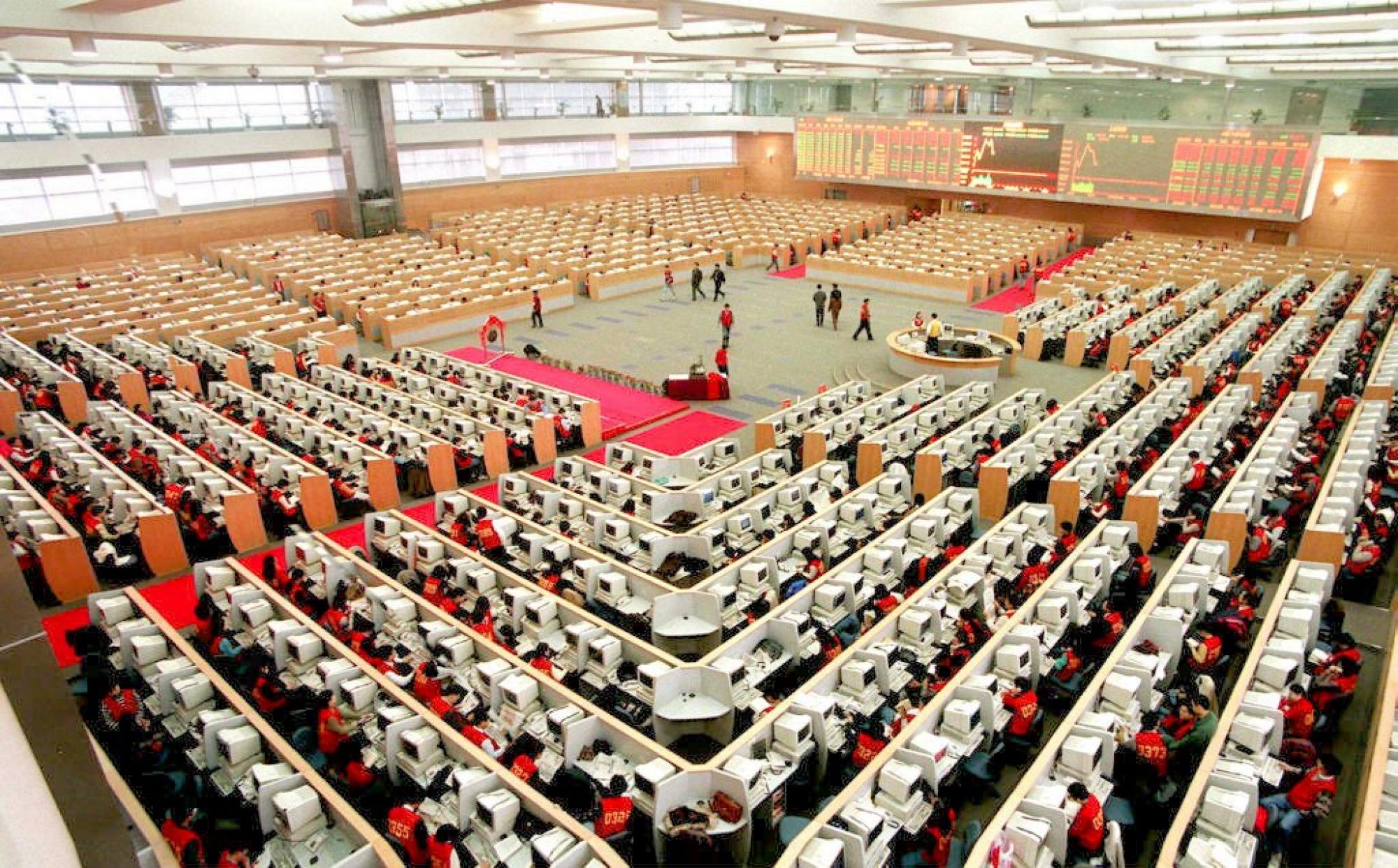Wilting fortunes: Wong Kar-wai’s Blossoms Shanghai drama series offers stock
“It is all tears and sorrow now, when people like me look back at the stock market,” said Lu Shunxi, a stock punter since trading first began in Shanghai in November 1990. “The birth of China’s stock market gave an opportunity to novice investors who were drawn to a casino-like market to gamble and prosper.”
For a quarter of a century, Shanghai’s stock market rode on China’s economic engine, which roared along at an average of 10 per cent every year from 1994 to 2007. After the 2008 Beijing Olympics, annual growth slowed to an average clip of 7.6 per cent through 2022.
The largest nation of communists also boasted the world’s second-largest capitalist market, valued at US$13 trillion at its peak in December 2021. China was minting dollar billionaires like the fictional A Bao in Blossoms Shanghai at the rate of almost one every day in 2020, before everything came crashing down.

‘Just in time’ morphs into ‘just in case’ as Covid-19 cuts supply chains
‘Just in time’ morphs into ‘just in case’ as Covid-19 cuts supply chains
Frustrated investors voted with their feet, pulling a record amount of money from the stock market over the past six months, punishing China’s reluctance to deploy a stimulus programme to rescue the economy. Shanghai-listed stocks have lost US$1.45 trillion of value since the market’s peak in December 2021. The nation’s equity market shrank by US$4.2 trillion over the same period, according to market data.
“Trading shares has become my biggest mistake in life since I keep losing money over the past two decades,” said Li Yan, an employee with a state-owned media company in Shanghai. “I have had to deposit more money into my brokerage account to try to overturn the losses. But the attempts have all resulted in more nightmares.”
Retail investors, shorn of the financial firepower and acumen of institutional fund managers, habitually pin their hopes on government incentives to spark a rally. Beijing has already rolled out a series of market-boosting measures, from stamp-duty cuts to liquidity injection, to put a floor under the plummeting stock prices.
As panic set in this week, China’s top leadership and policymakers – from Premier Li Qiang to central bank governor Pan Gongsheng – stepped in to stem a loss of confidence. The People’s Bank of China said this week that it would return 1 trillion yuan (US$140 billion) to commercial banks on February 5 to spur lending, after surprising the market with a cut in their reserve-requirement ratio.
The Shanghai Stock Exchange has recouped US$330 billion of value, when the market rebounded by almost 3 per cent this week from a five-year low.
“Retail investors have been eagerly awaiting a rally to recover their losses,” said Ivan Li, a fund manager at Loyal Wealth Management in Shanghai. “They want the authorities to show substantial support to the market.”
Many of China’s retail investors want to believe that Blossoms Shanghai is making an oblique reference to a lasting turnaround in the stock market and the economy. The drama has already effectively bolstered retails spending and tourism in Shanghai. It’s a shot in the arm for Gong Zheng, the mayor of Shanghai, after yet another underperforming year of growth.
Some of the world’s biggest money managers, including Fidelity International and Franklin Templeton, are forecasting a rebound in Chinese stocks. More state support will help revive economic growth and confidence, they said, and investors will soon be lured by deeply discounted valuations.

“The price-to-earnings ratio is standing at a low level,” UBS’…
Read More: Wilting fortunes: Wong Kar-wai’s Blossoms Shanghai drama series offers stock

